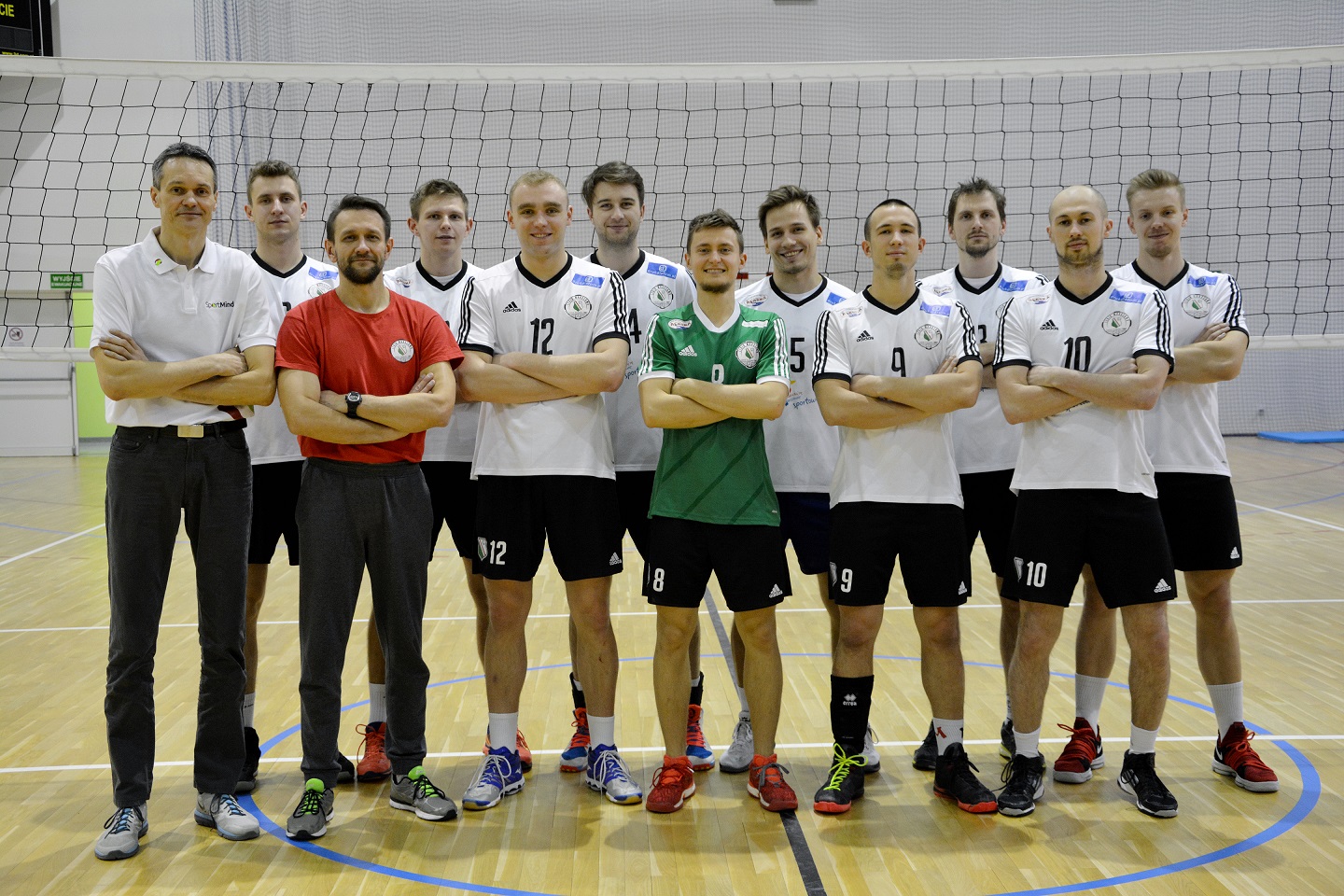Legia Warszawa kept its position in the league despite of missing their most effective player
 Look into the team setting and see how they made it
Look into the team setting and see how they made it
The Legia Warszawa is the 2nd league volleyball team. In the last season, they managed to retain the fourth place in their league and then finished in the 3-4 places in the playoffs. And that happened despite an unpleasant situation. They played the last key six matches (1 in the main round and 5 in playoffs) without their most experienced player who had left the team.
Legia Warszawa started to use SportMind at the beginning of the second round of the 2017/2018 season and was using the diagnostics until the end of the competition in this season.
Pre-match diagnostics showed that Agression and Anxiety affects the team’s result
The cooperation was focused mainly on the pre-match diagnostics (diagnostics of Opponent and Psychic Energy). The coach was given additional support in the form of consultations and interpretations of results from SportMind and based on these, he made the final decisions regarding the composition of the team for the match and the way of running the team.
Analyzing the Opponent diagnostics over the time, we have made interesting findings. The Aggression parameter achieved the lowest results in the three games following the departure of the most titled player. With these results of aggression, the team won three very important matches losing only one set.
However, in all cases in which the team played with a very low level of the Anxiety parameter (values 3-7) ended in defeat, even though they played with opponents who were lower in the table.
Why is this interesting?
Aggression is one of the essential source for good play. A high level of aggression brings the need for dealing with situations more aggressively and with greater use of force, but at extremely high levels of around 95-100, it is necessary to beware of the possibility of fouls and subsequent penalties especially when Anxiety parameter is high. At low levels, a reasonable dose of aggressiveness will not be put into play, so this can be used by the opponent to win.
 Agression parameter low — ment WIN in this case
Agression parameter low — ment WIN in this case
This parameter shows which level of aggression the competitor will bring. In reality it means how much aggression the whole team will be willing to use in the match.
An anxiety parameter is associated with uncertainty and low belief in self-worth at high values; at this point, it is necessary to deflect this feeling in the team and make sure that it has sufficient ability to play with the team’s rival variant and win. At very low 0 – 10, there is insufficient activation of the team, and the team can start to behave in such way that the match with this opponent is not indifferent.
However, when considering a particular diagnostics result, all parameters must be reflected together. For example, the low value can be replaced by other high-value parameters.
 Anxiety parameter low – ment DEFEAT in this case
Anxiety parameter low – ment DEFEAT in this case
This parameter shows which level of anxiety will the competitor bring. In reality it means if the competitor can create the anxiety feeling in the team.

“Of course, this does not necessarily work for all teams. When analysing the diagnostics of the opponent, it is important to discover the optimal parameters for a given team, because this is always a set of specific individualities and characters.” says the mental coach Darek Szostek about the cooperation.
“I knew more about the confidence and feelings of the players.” says the coach about the cooperation with SportMind
“Thanks to SportMind I got to know a new dimension of work with athletes. The broadly understood sports psychology is known to me, and I know how important it is in achieving high sports results, but the CA method I used in SportMind, I met for the first time, and I am impressed. The results obtained thanks to this method definitely help in achieving the set goals.
Using SportMind makes my work easier, but of course you have to implement it at the beginning. Thanks to it, I have the opportunity to evaluate the player more about how he feels, what confidence he has, whether something is not distracting him. And also how these factors affect his playing.
Based on pre-match diagnostics, I can properly stimulate players for the upcoming match. You can see in them the attitude of the team to the opponent and based on these results I can stimulate the players more, or remove pressure, or maintain the achieved results. It also allows you to focus more on the tactical issues themselves.
Individual pre-match diagnosis of the players was the most helpful for me. You can see their direct involvement before the match, what they are practically thinking about, what they are focused on at the moment, how they feel physically. On this basis, I can evaluate the performance of a given player more accurately and quickly, and determine if he can improve something in his game in a given match” says the coach Daniel Kołodziejczyk.
